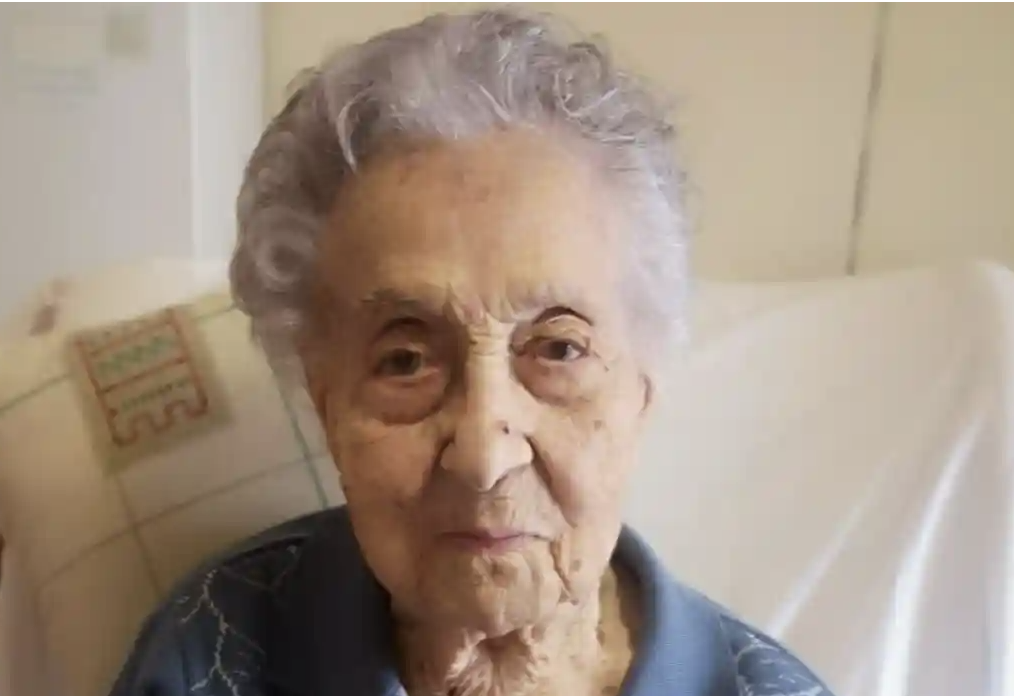THE GUARDIAN – María Branyas Morera has lived through two world wars, the Spanish civil war, the 1918 flu pandemic and Covid.
Now the California-born woman is the world’s oldest living person.
Branyas, 115, became the eldest known person alive after the death of 118-year-old Lucille Randon, the Guinness world records website confirmed last week. Randon died at her nursing home in the French town of Toulon on 17 January.
Branyas captured global headlines after she survived a bout of Covid in May 2020, when the pandemic made Spain one of the hardest-hit countries before the availability of vaccines. She was believed to be the oldest Covid survivor at one point, before Randon survived contracting the virus herself.
“Order, tranquility, good connection with family and friends, contact with nature, emotional stability, no worries, no regrets, lots of positivity and staying away from toxic people” is what Branyas credits with her longevity, according to the Guinness site.
“I think longevity is also about being lucky,” Branyas said, Guinness officials added. “Luck and good genetics.”
Branyas was born in San Francisco on 4 March 1907, a year after her parents moved from Spain to the US.
Over the next eight years, the family moved to Texas and New Orleans, where her father founded the Spanish-language magazine Mercurio, before they returned to Spain and settled in Catalonia.
Ever since, Branyas has endured defining moments on scales large and small.
Her father died from pulmonary tuberculosis on the ocean journey from the US to Spain …
7 Toxic Phrases People In Relationships Say Without Realizing It
Kelsey Borresen | December 2, 2021
HUFFPOST – In our closest relationships, it’s easy to speak without thinking. It seems like a good thing: We’re so comfortable with each other we can share whatever is on our mind.
But sometimes it can have a negative effect. Off-the-cuff remarks can be misconstrued, and words said in frustration may cut deep. Prime examples:
- “It’s not a big deal” or “You’ll get over it.”
- “You’re just like your father.”
- “You always … ” or “You never … ”
- “You’re doing it wrong. Why can’t you just do it my way?”
- “I am done.”
- “You’re too sensitive.”
- Not saying anything.



